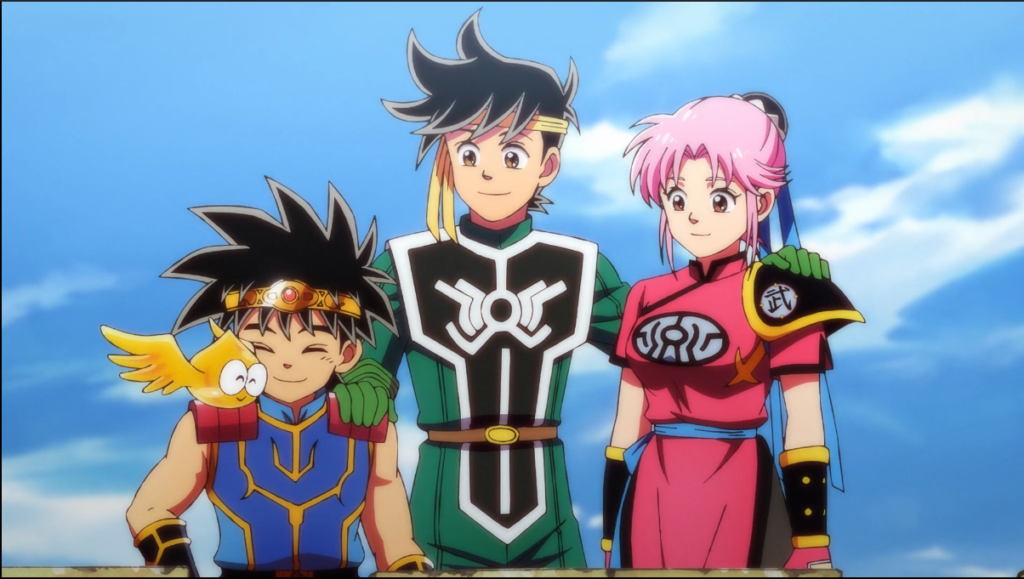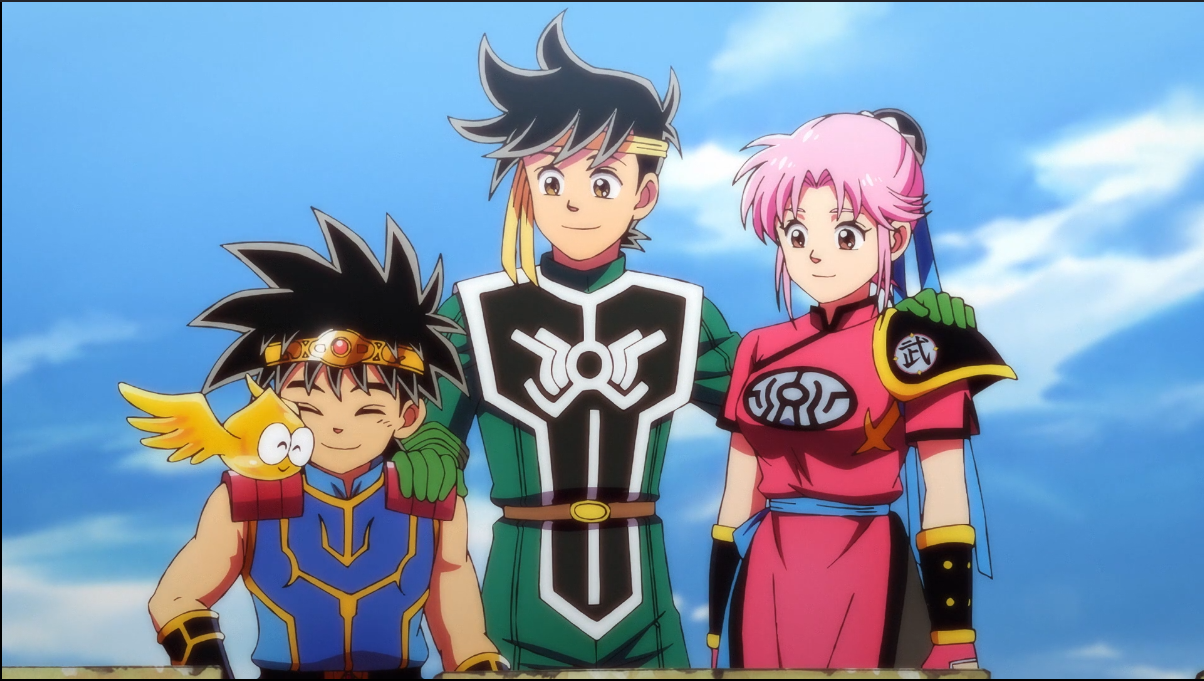Anime Review: Dragon Quest: The Adventure of Dai (2020)
Years ago, the dark lord Hadlar was defeated by the Hero’s party, and was thought dead. This means little to young Dai, a human boy brought up by monsters on peaceful Dermline Island. He is friends with all the monsters, and loves his Grampa Brass, even if training to be a mage isn’t working very well. When humans come to the island seeking Dai’s best friend, the golden slime Gome-chan, he thinks they’re heroes, but they are actually treacherous. Although Dai defeats the false heroes, they do introduce him to the wider world, for which he will become the true Hero.

Dragon Quest: Dai no Daibouken (“Dai’s Big Adventure”) was a shounen (boys’) manga that ran in Shounen Jump from 1989 to 1996. It was inspired by the popular video game Dragon Quest III but is not in continuity with it. It previously had an animated adaptation from 1991-1992, but as the manga was still ongoing left about two-thirds of the story un-adapted. This new anime covered the entire story in 100 episodes.
One of the traditions of Dragon Quest lore is that monsters aren’t inherently evil, with most not being hostile to humans unless swayed by the mental energies of a powerful master. So after a couple of early adventures, it comes as a shock to Dai when his Dermline Island friends turn against him. A “hero trainer” named Avan arrives and sets up a special field that blocks the corruptive influence, explaining that this event means that Hadlar has somehow returned. Avan and his cowardly mage disciple Popp have arrived to give Dai the basic training he’ll need as a Hero.
After only a few days, Hadlar himself arrives on the island. He turns out to have been revived from near death by Dark King Vearn, an even more powerful being. Avan turns out to have been the Hero that defeated Hadlar back when, and as part of the new takeover plan, he must die first. Hadlar succeeds in removing Avan, but at high cost, so he’s unable/unwilling to take the time to eliminate Dai and Popp as well.
The rookie heroic pair head to find help in the quest to avenge their master, and run across another disciple of Avan, the magical gun wielder Maam. She joins the party, and the trio are off on a grand adventure! They fight tough opponents, recruit new allies (some of them former opponents) and work for the day they can defeat Dark King Vearn and his Dark Army to restore peace to the world!
Good: The series takes the tropes and plot structure of a typical Japanese RPG video game and makes solid use of them in an original story. Overuse of many of these moments in other series has turned them into cliches, but here they’re still fresh.
There’s good character development, especially for Popp, who grows from a sniveling coward to someone who’s respected by the baddies as truly dangerous despite his continuing lack of confidence.
The enemies have varied personalities and motives, making them memorable and keeping the confrontations from getting stale. The supporting cast are also pretty good and give the story an epic feel as they multiply. Some of the support cast are even worthy of their own side stories.
The art and animation are decent throughout, with a few episodes getting the deluxe treatment for important battles.
Less good: Especially in the last third of the series, when the story enters its endgame, “miracles” start coming thick, one right after another. Many of them were foreshadowed, but it still feels cheapened when yet another “dead” character suddenly reappears. It gets to the point where Vearn actually thinks, “now I’ve won! No, wait, miracles have been happening on a regular basis…and there it is.”
Due to the age of the story, some humor elements have aged poorly, like “the dirty old man who never faces serious consequences for his sleazy actions” (toned down a bit from the manga for modern sensibilities.)
The story ends on an annoying sequel hook that was never resolved as the artist had health issues for a long time, then moved on to other projects.
Content note: Fantastic racism. Humans, Darklings, and Dragons don’t get along most of the time, and their crossbreed children are discriminated against. This leads to some tragic backstories, and Dai is warned that as soon as he’s no longer useful, the humans may turn against him because of his powerful heritage. The usual fantasy game violence. Mild sexual humor. A couple of fathers are abusive towards their sons, though one comes to regret this.
Overall: A minor classic in the field of video game-inspired shounen manga. A touch long, but now that it’s complete you can enjoy it at your leisure. Most recommended to fans of fantasy RPGs.

